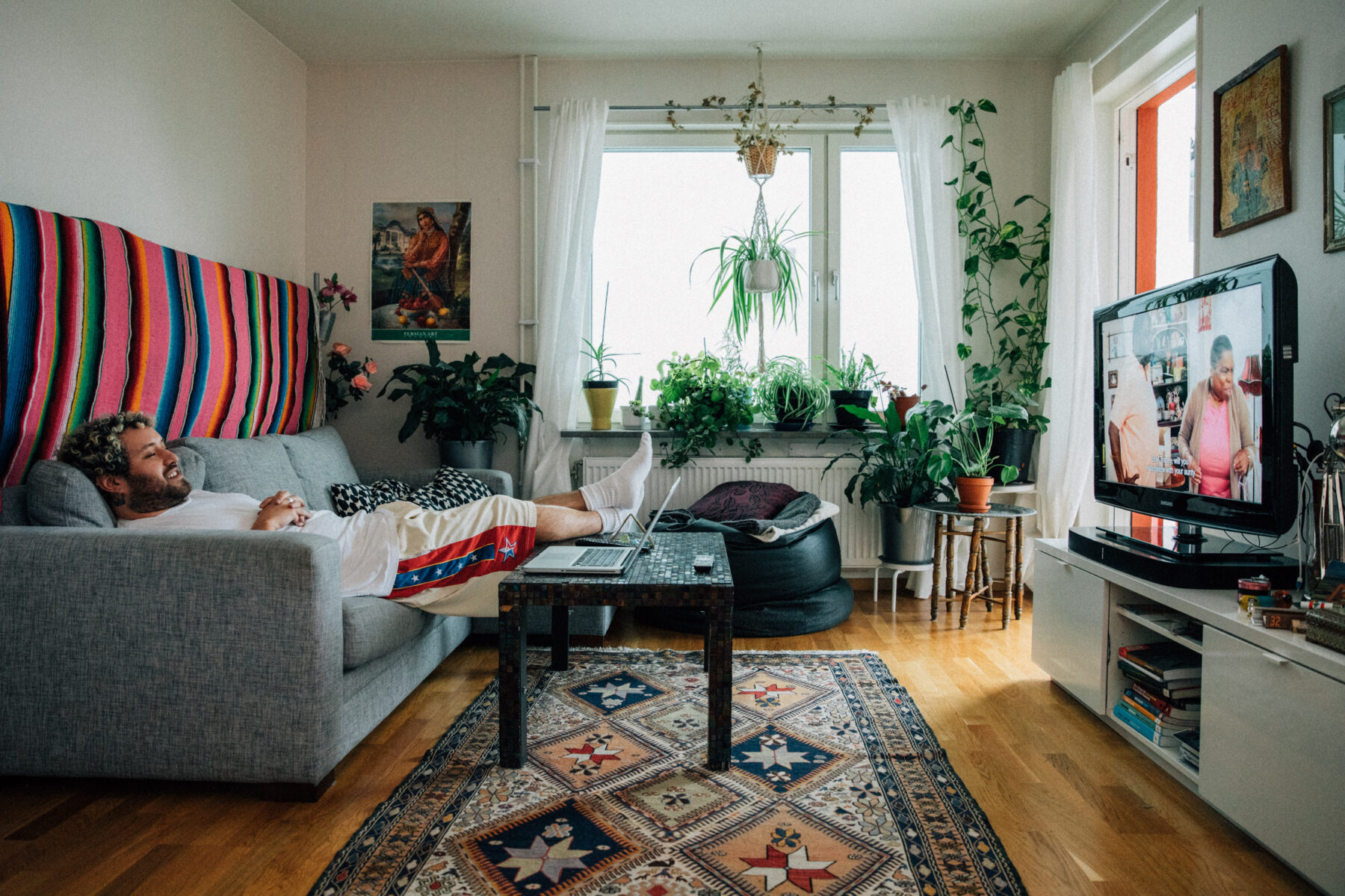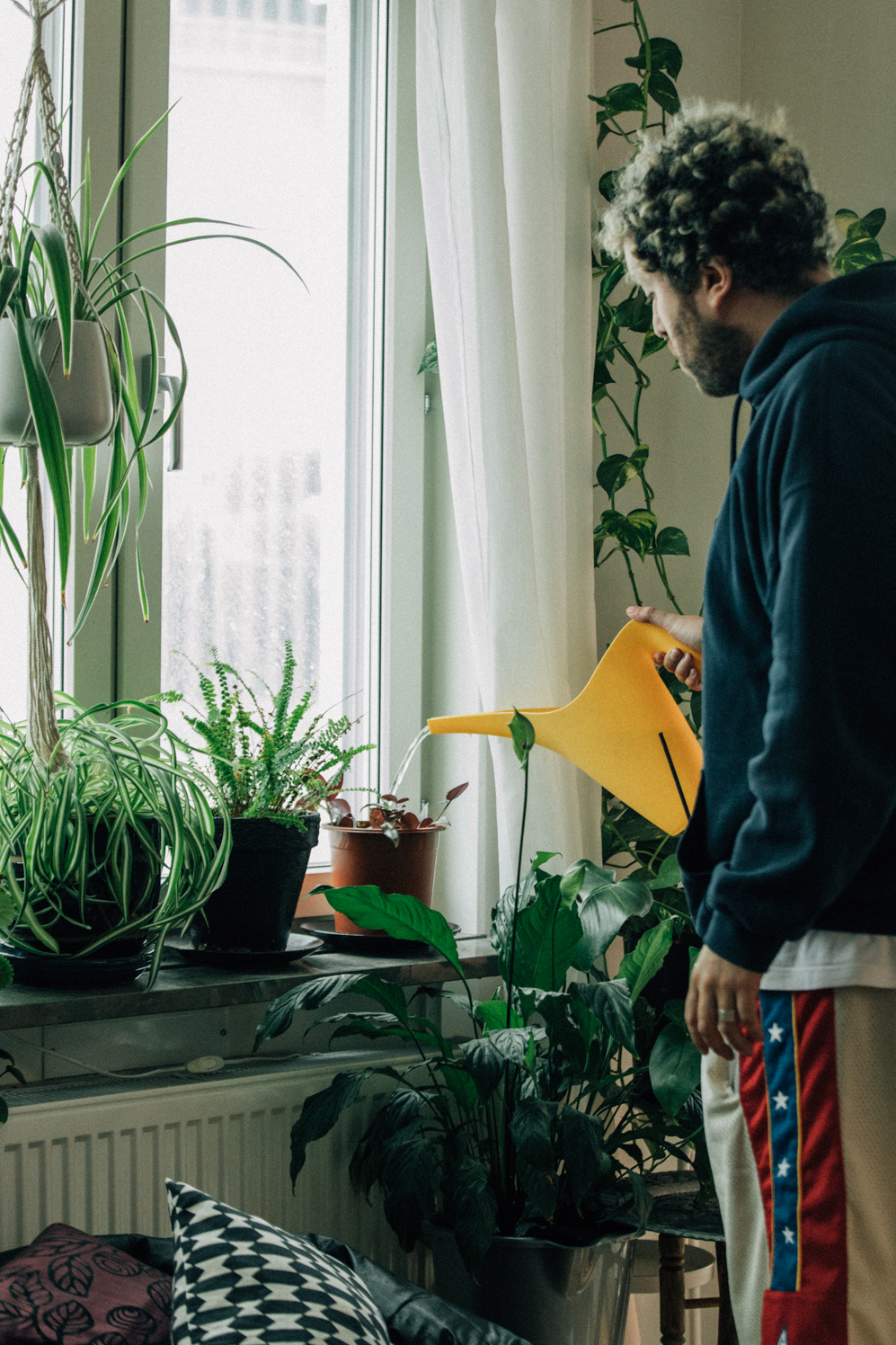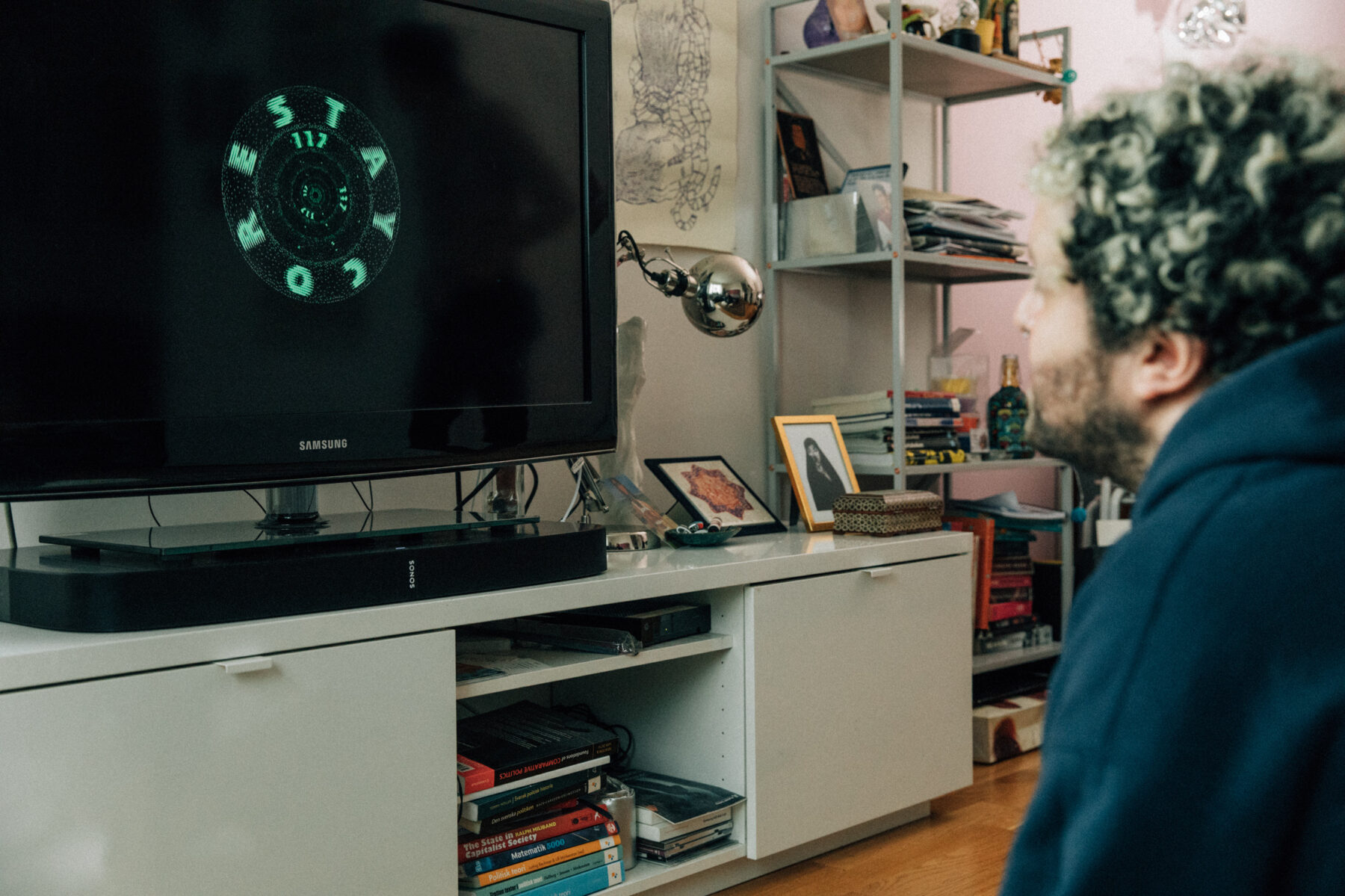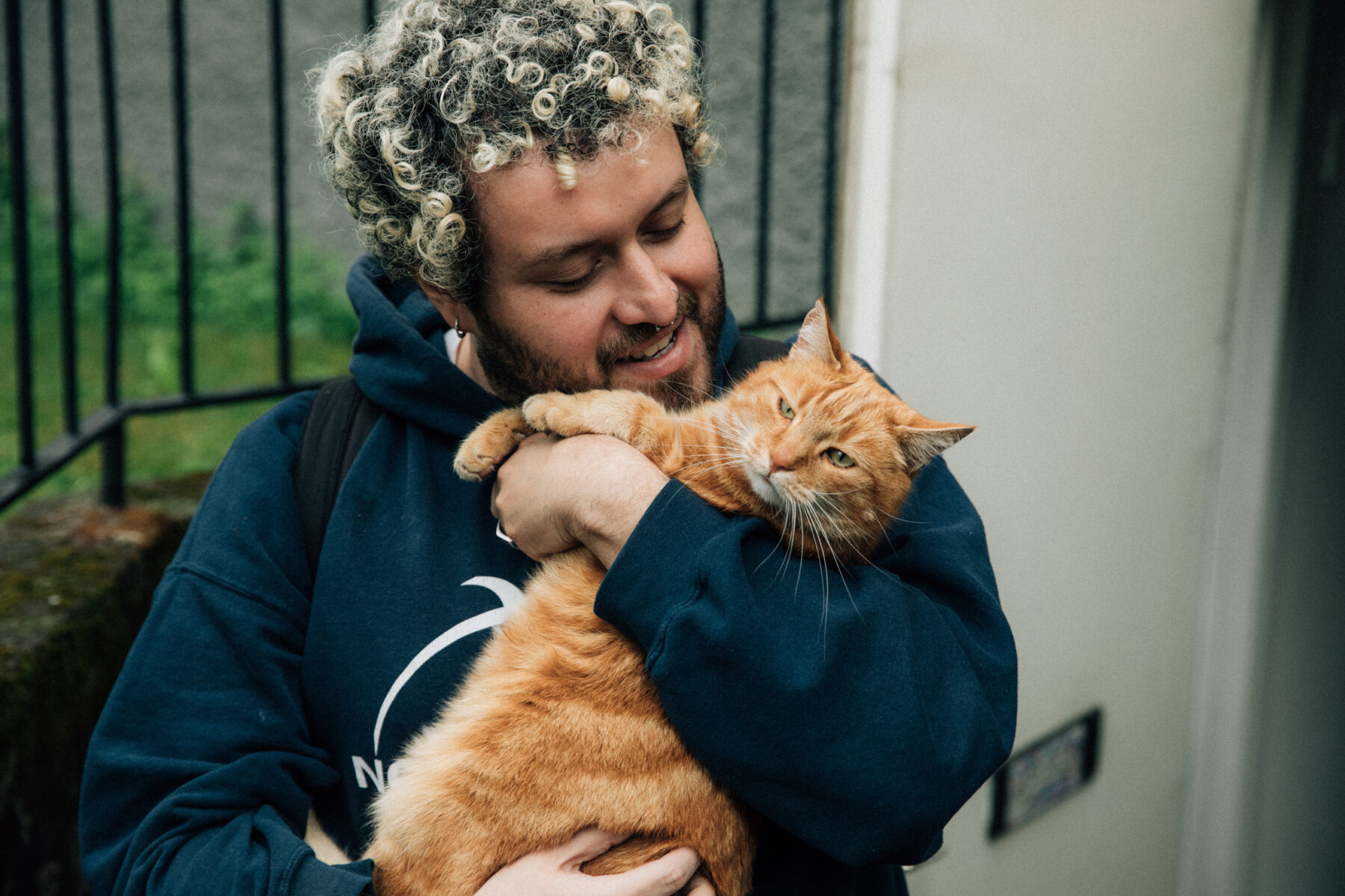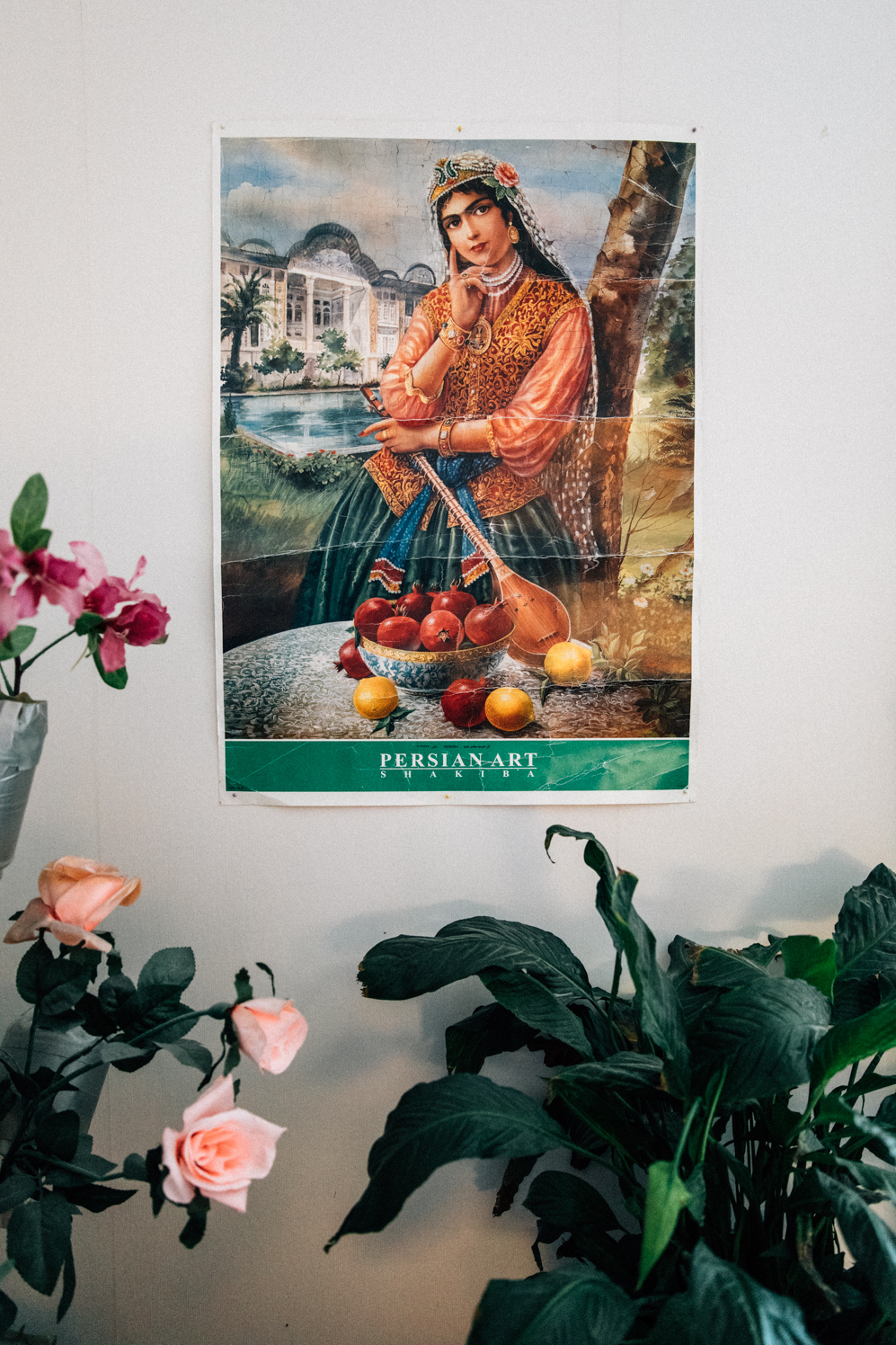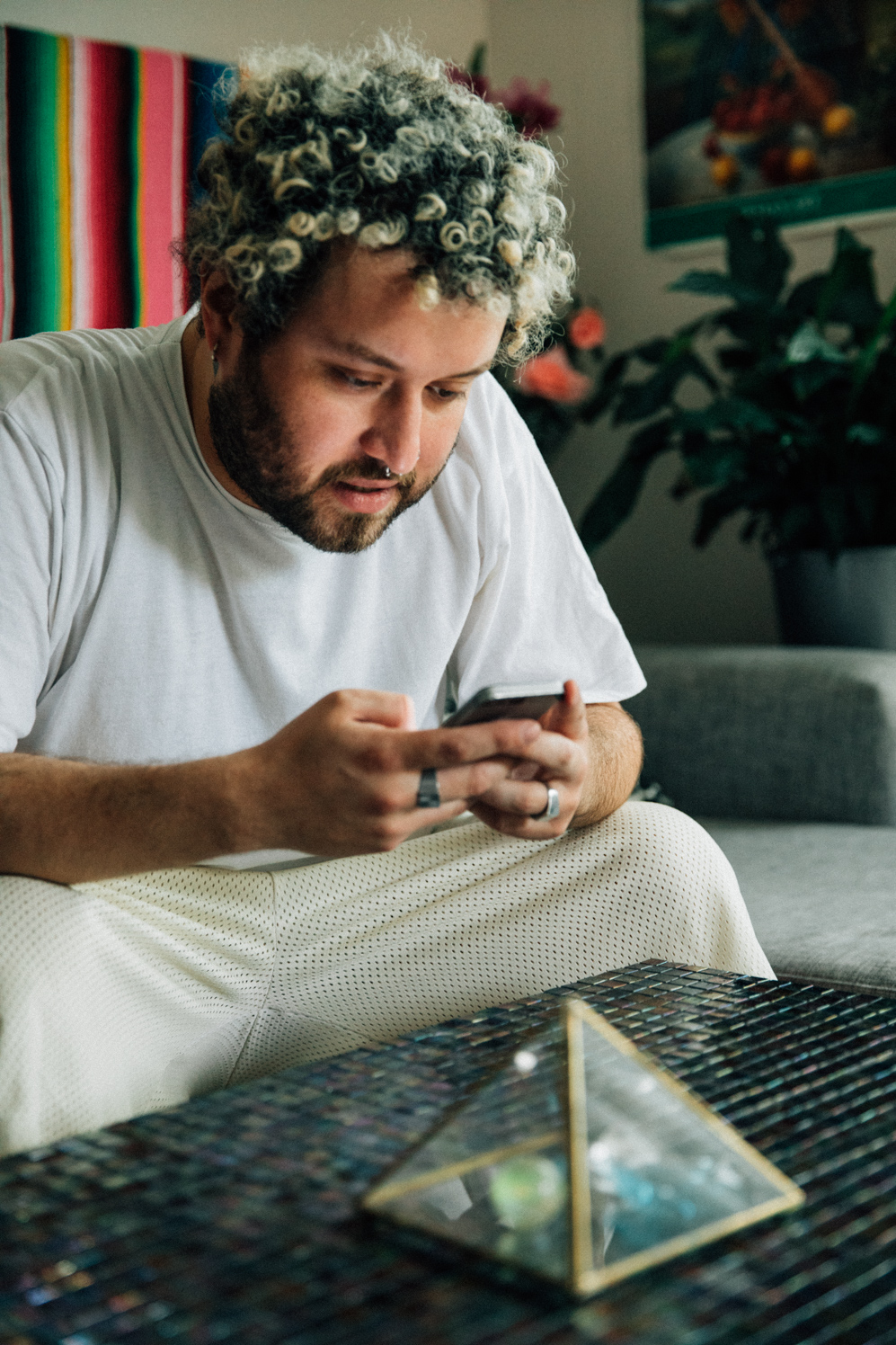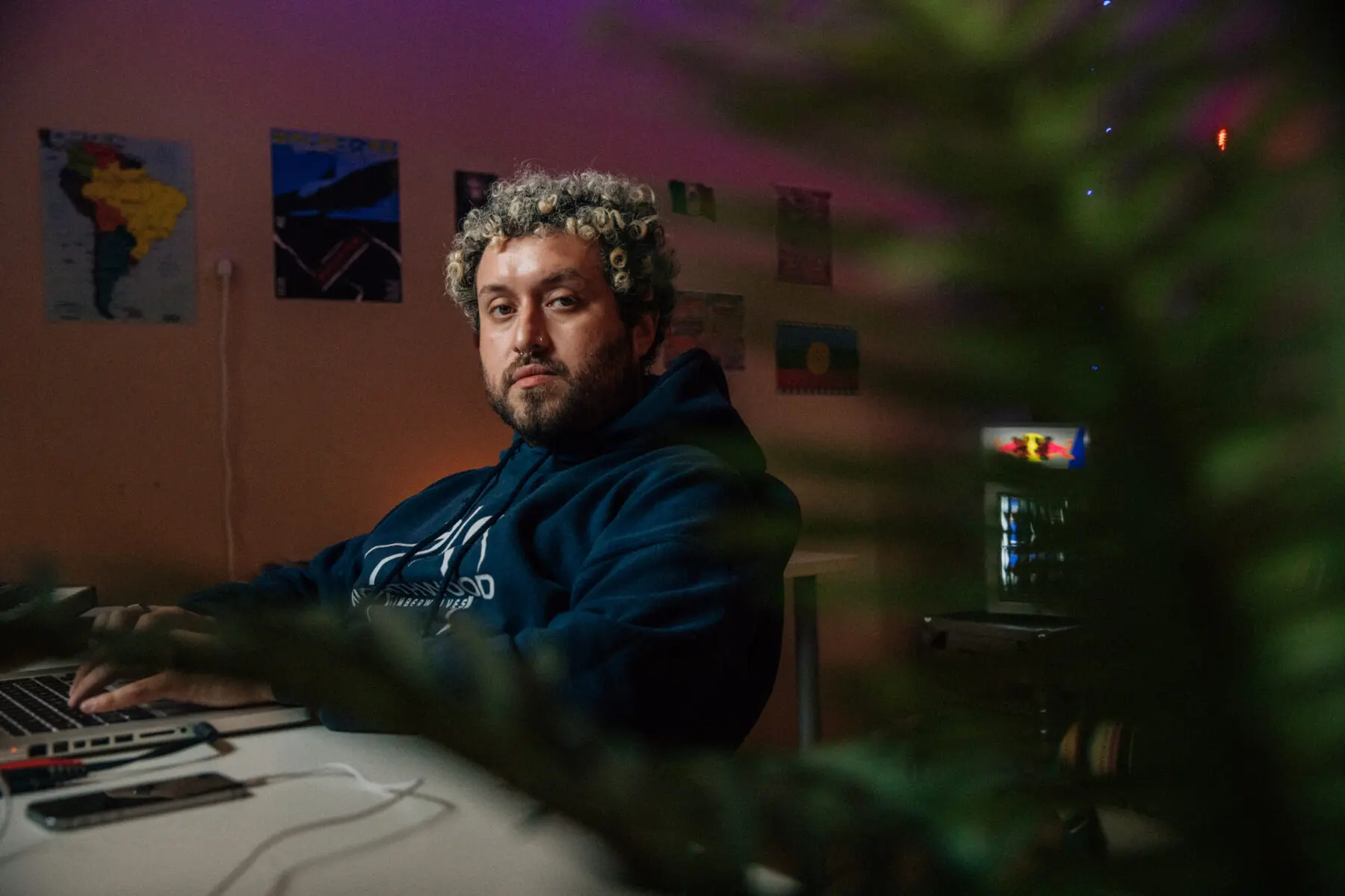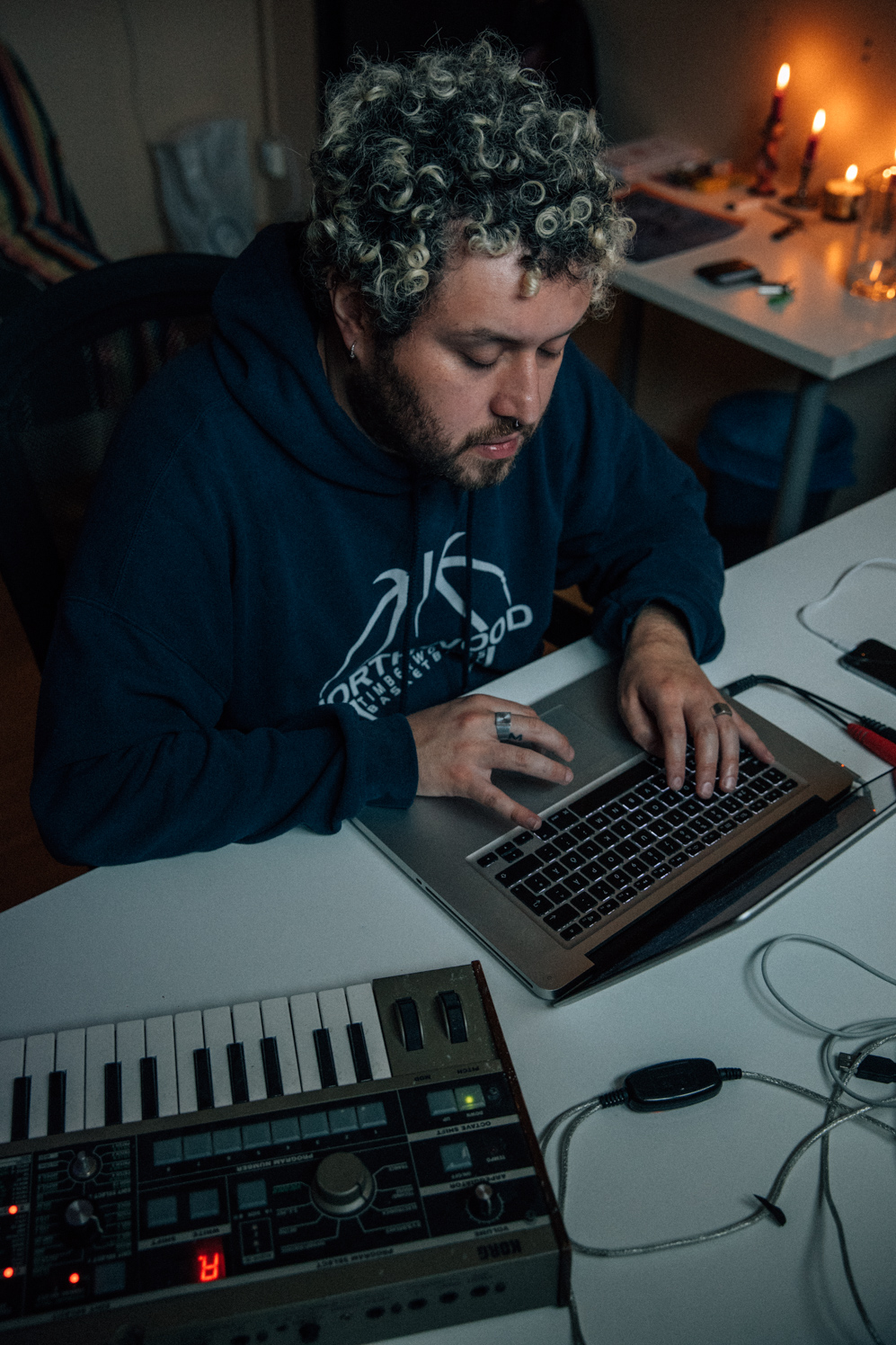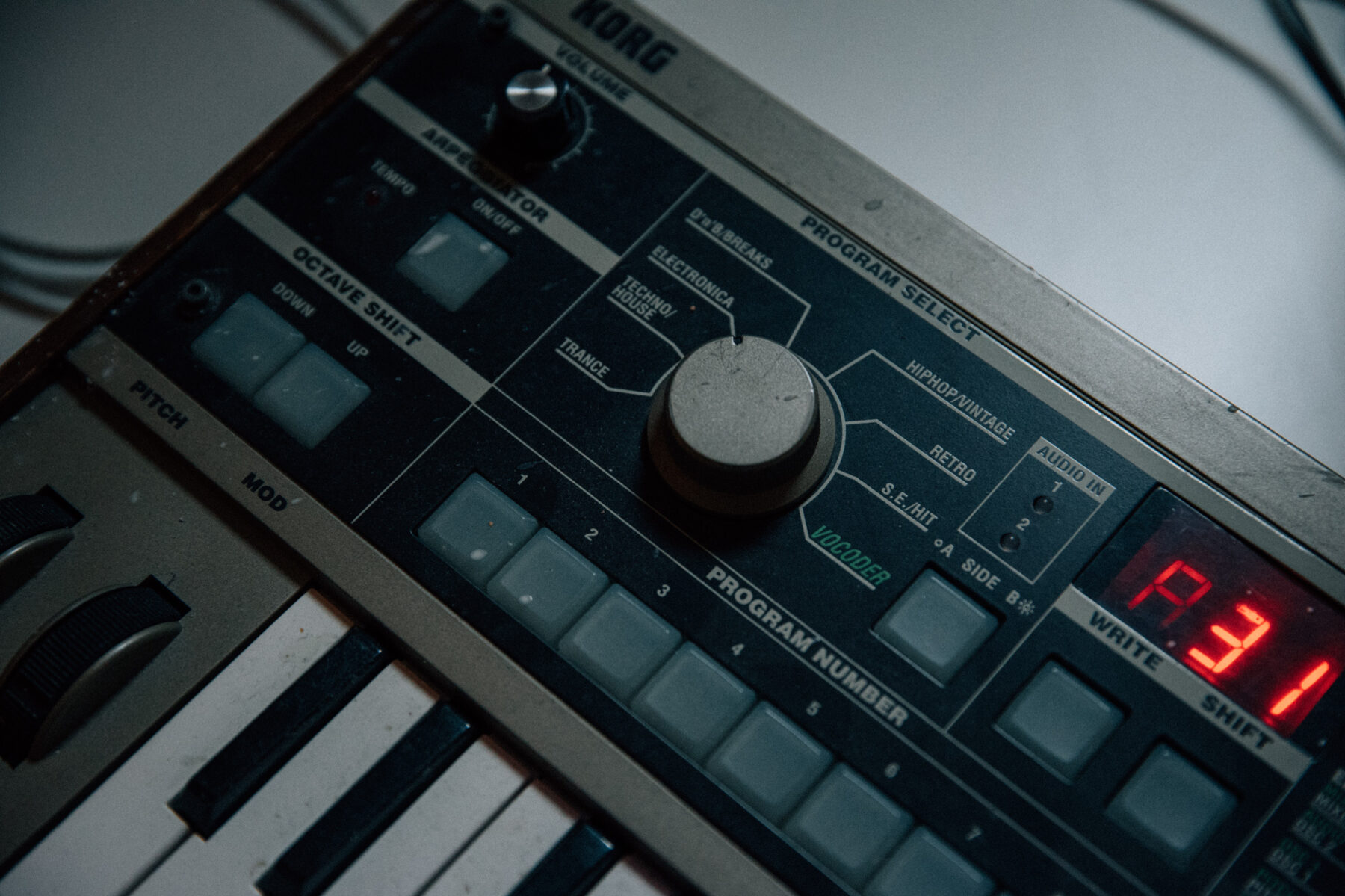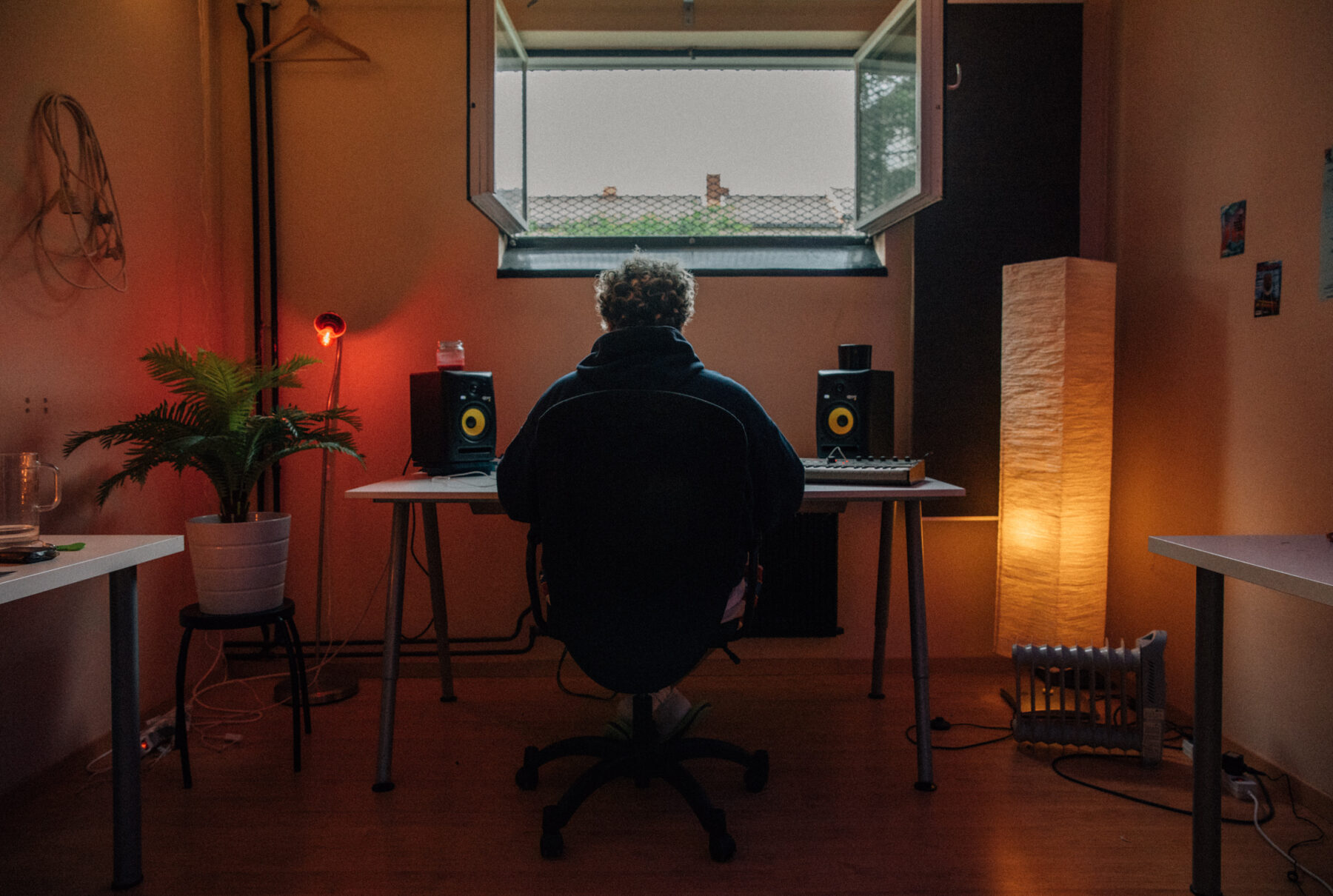Whatever you call it—a philosophy, an ethos, a mantra—Swedish-Chilean DJ Cristian Dinamarca is a man guided by his inveterate pursuit of happiness and a simple belief: do what makes you happy.
Cristian has been a mainstay on the stages of Stockholm’s biggest clubs. He has his own record label called Staycore. He has released three EPs, the last of which prompted a three-week tour of Asia; playing in Seoul, Beijing and Tokyo to clubs packed with ardent, sweaty fans. And yet this worldview—a desire to be himself—is not a cliché. It’s not a bumper-sticker slogan that he rattles off. It’s likely not even something he’s all that conscious of. It’s simply a theme, one that resurfaces again and again in conversation about his music, his relationships and his life.
“I always want to advance in life,” Cristian says, “Not business-wise; I just always want to be happier. Listening to myself was a huge step. My thinking was ‘don’t care what other people think about your music.’ Now I can work in my studio and have no annoying thoughts—like ‘fuck, this is not going to work’ or ‘this is weird’. Now I just do stuff that makes me happy. That’s most important to me.”
The music we surround ourselves in our homes and workplaces help define and shape our personalities. We’re happy that our collaboration with Sonos allows us to meet unique and inspiring individuals like Cristian, and explore the impact of music on their daily lives.
“I want to listen or dance to stuff but it doesn’t exist, so I have to create it.”
It’s admirable how deep it runs, hinting at a man who, despite gracing the stages of some of the world’s biggest clubs, manages to avoid the kind of self-conscious crowd-pleasing that’s so common—not just in the industry but in life. Making a hit that rises up among the trending tracks is not on his mind. Rather, he’s making music that’s guided by a silent soundtrack in his head—a song that hasn’t been written yet but is exactly what he wants to listen to.
“I try to find the perfect type of music that I like,” he says, describing his work as club music that’s electronic with Latin influences. “So I try to create it. Let’s say you make clothes. I’m guessing you’re making stuff that you want to wear yourself because it doesn’t exist right now. It’s the same. I want to listen or dance to stuff but it doesn’t exist, so I have to create it.”
Despite an Instagram feed full of neon strobes and dimly lit clubs, his life is a quiet one that’s split between his suburban Stockholm apartment and his modest music studio. In the basement of an apartment building in Årsta, he spends solitary days in a studio outfitted with just a laptop, speakers and a keyboard. His process is a drawn-out one, working on up to 15 songs for months at a time, a deliberate exercise in not overthinking the music—or at least trying not to.
“Worrying about what other people will think is a normal human thing to do, so I just have to keep reminding myself.”
“Worrying about what other people will think is a normal human thing to do, so I just have to keep reminding myself,” Cristian explains. “Every time I see a quote about this, I save it in a file. And when I have these weird thoughts, I go back to it to remind myself: just be yourself.”
He has been like this for as long as he can remember. And it follows a direct line—from his birth in dictator Augusto Pinochet’s Chile, to his family’s emigration to Sweden under an asylum application, and then back to Chile for a brief time before finally settling in Sweden. These dramatic moves, his dual identity as a man with two countries, and his continuing role as ‘immigrant’ in Sweden—despite having lived there for more than 20 years—has molded and fortified his self-possessed, yet gentle way of approaching life.
Cristian’s family moved to Sweden in the wake of the U.S. sponsored military coup in Chile in 1973, and the overthrow of socialist President Salvador Allende, before he was just two years old. The notorious dictatorship of Pinochet that followed brutalized the country. “A lot of people had to flee because they were killing everyone who supported the president,” Cristian says. “And so for 17 years, people were being tortured. There was no money. Everything moved backwards. People had to flee. My parents were left in a really poor area and there was nothing, no opportunities.”
Even after being granted asylum in Sweden and settling into the largely immigrant Stockholm suburb of Alby, near the end of the red line, Chile continued to be an outsized part of his life and identity. The family had plans to move back, and were saving to buy a house there. It wasn’t until his family returned to Sweden after a short stint in Chile that he felt committed to the country. “When we went back to Chile, my parents just didn’t like it,” he says. “After 17 years of dictatorship, the country was ruined.”
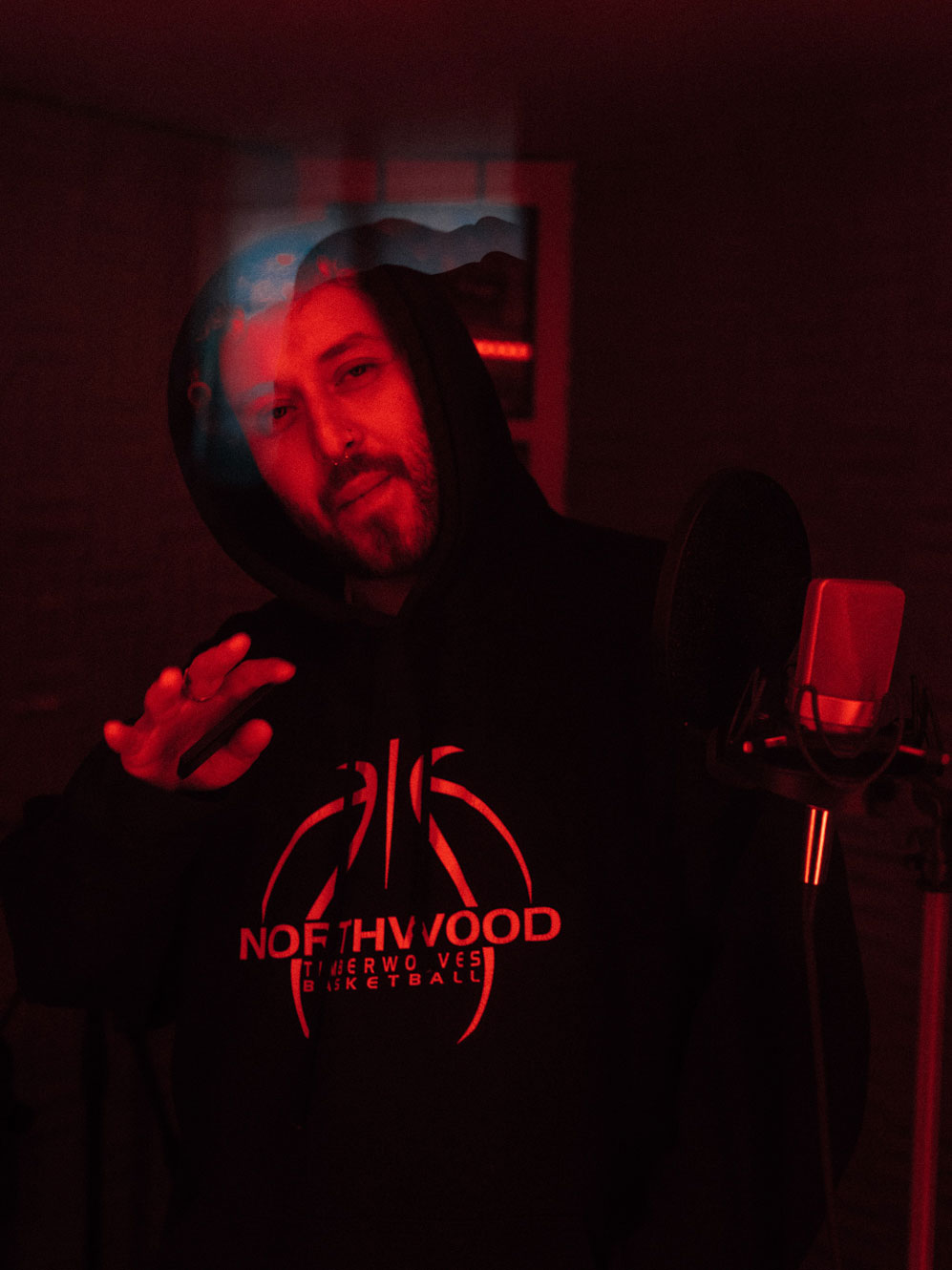
Despite the hardship of leaving his birthplace and trying to find a place of his own in homogenous Sweden, none of these were pivotal moments in his life. The decisive moment—one he points at as a touchstone in his life that he returns to often—came when he was 13 and took a DJ class every Wednesday at the local youth center. “I remember the teachers were kids as well, maybe 16 years old,” Cristian says. “We got a really good teacher who taught us all the basics. And then he just left us alone. You only need to know what everything does, and after that you practice and find your own way.” As kids in that area, he says that you either listened to hip-hop or electronic and trance. He liked the latter.
Cristian spent the next two years honing his skills, but the proms and dances became too bleak to bear. He picked it back up at 18 when he could play in the Stockholm clubs, and he spent the next few years with residencies at the most popular ones in the city—Berns, Spy Bar and the now-shuttered F12. The music and the clubs got him out of Alby, and allowed him to experience the city—but this was a culture shock all of its own.
“The neighborhood I grew up in is almost all immigrants,” he says. “I had no Swedish classmates. After a while, you feel like you’re not a part of Sweden. You get to an age where you want to be part of the other subway stations. But when I was playing in the city, I remember people noticing, like: ‘oh, where are you from?’ You get reminded all the time that you’re an immigrant. I could be in a club, and people come up to me and speak English. And I can hear their Swedish accent. And I’m like ‘why are you speaking English to me?’ I didn’t want people to know where I’m from. I just want to be a person.”
“My music is a mix of Europe and South America, and you can really hear it. At least I can.”
The attitudes he encountered night after night extended beyond what is likely an unconscious fascination with his ‘otherness,’ a feeling that’s familiar to anyone in Sweden from anywhere but Sweden. Here he also discovered insecurity among Swedes in the city, a trait he identifies as ‘ängsliga’, the Swedish word for anxious or fearful. “This is true, especially in Stockholm,” he says. “It’s a city where people really care about what other people think. I remember at first, I didn’t care what people thought about me. But then you start hanging out in the city more, and I noticed this different mentality. This way I have of thinking, of just trying to be myself and be happy, might have been a reaction to that.”
It pushed him back to his roots, which appear throughout his music. “I keep going back to my youth when I create,” Cristian says. “Because that’s when I just listened to what I loved and did what I loved. For my latest EP, I sampled a lot of trance music from when I was learning to DJ at 13. But the drums and rhythms sound more Latin. I’m always putting in elements from Chile. My music is a mix of Europe and South America, and you can really hear it. At least I can.”
Cristian has long since stopped playing in the Stockholm clubs, focusing instead on making his own music and playing it for crowds in bigger European cities. “Music can be anything. When I started making music, I realized that anything works on the dance floor. I can play a song that’s really chill and people will be there,” he says. “I need to be happy and inspired to make music. It helps to listen to other music to get into this nice mood. I’m really bad at making stuff when I’m sad or angry. I’m making music that makes me happy, and I think that’s what drives me.”
As his work evolves, so too does his role—moving from DJ to musician and now into producer. Together with co-founder Ghazal, he launched a label called Staycore back in December 2014 alongside his first EP. Today, the label has grown to include work from six other artists, including Toxe, Mechatok and Mobilegirl. But they’re not signed because that’s not Cristian’s way. Instead, he tries to offer artists a platform for releasing great music, but without the pressures of a formal business relationship or contract.
“Staycore means stay true to your core and be true to yourself,” he says. “It’s about making music for you, not for everyone else. We try to find artists who are doing a similar thing—not genre-wise but people doing what they love. That’s why we started our own label. You don’t have to think about whether a label will like it. We do whatever feels right at the moment.”
Right now, that means preparing for his next EP release—whenever that may come—and regrouping from his first tour. His time at home is peaceful, and purposefully so. He spends his evenings during the week cooking, listening to reggaeton or Rihanna, and enjoying the quiet before he heads out to play in Europe’s biggest cities on the weekends. “Because I’m in the studio the whole day, I don’t listen to that much club music when I get home,” Cristian says. “I try to set the mood for whatever I’m doing. If I’m cooking, I just want to listen to something nice and chill. It’s one of the first things I do when I come home. I guess I’m DJing my own mood.”
For years we have glimpsed into the work and home lives of creatives worldwide. With each visit we have discovered something new, but what we’ve found everywhere is music. Thecollaboration with our friends at Sonos is special, together we have asked the people around us what the role of music plays in their life—what tunes they grew up with, and what their favorites are now.
With advances in technology, the way that we listen to music changes. Independent of personal taste, Sonos is the home sound system. Learn morehere.
Cristian, at the risk of sounding clichéd—what a delight it was meeting you. Thank you for so generously sharing your way of seeing the world with us, and for showing us your Stockholm.
If you’d like to hear more from Cristian, check out his SoundCloud and keep up to date with his performance schedule via Facebook. Need a little more context? Follow along on Cristian’s day to day happenings via his Instagram page, or visit Staycore’s SoundCloud to hear the other producers that share Cristian’s vision of staying true to yourself.
Dive into other stories from Stockholm from the FvF vault here. Need some new tunes? Visit our Mixtape section to keep your ears busy.
Text:Lindsay Hedenskog
Photography:Martin Wichardt
